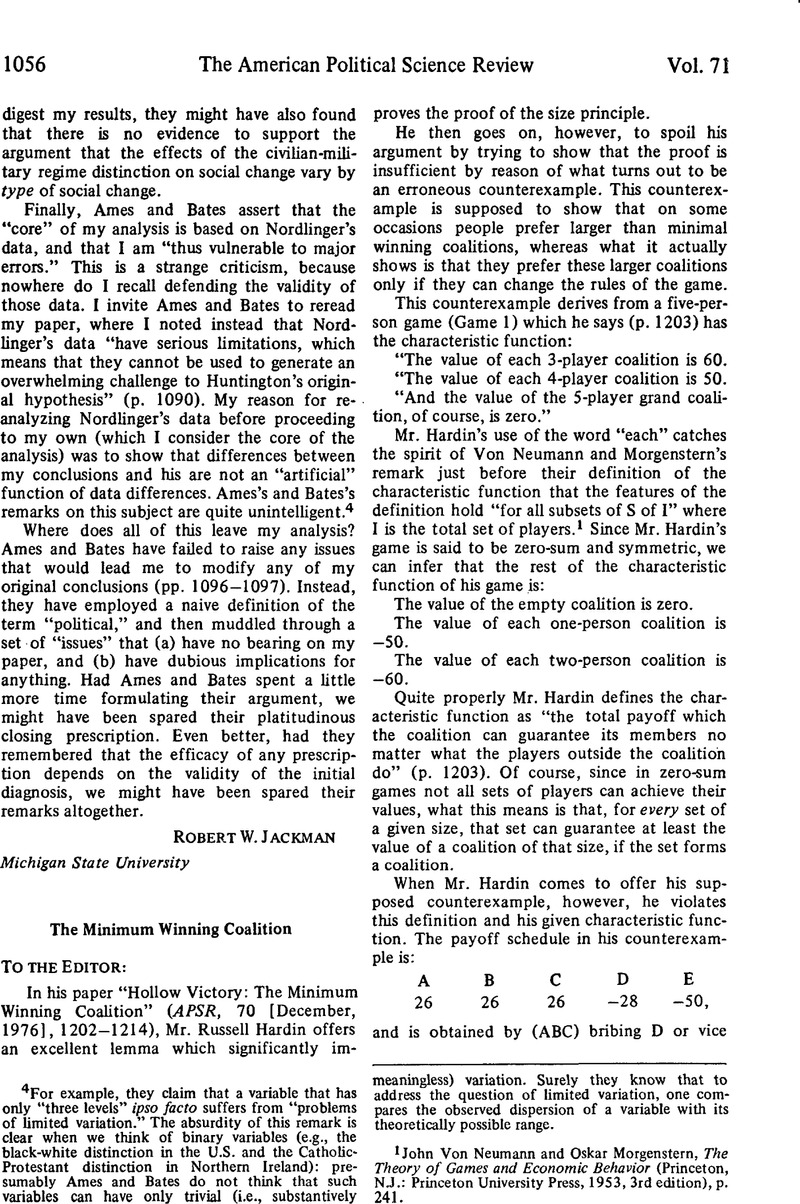Published online by Cambridge University Press: 01 August 2014

page 1056 note 1 Von Neumann, John and Morgenstern, Oskar, The Theory of Games and Economic Behavior (Princeton, NJ.: Princeton University Press, 1953, 3rd edition), p. 241 Google Scholar.
page 1058 note 2 Aumann, R. J. and Maschler, Michael, “The Bargaining Set for Cooperative Games” in Advances in Came Theory (No. 52 in Annals of Mathematics), ed. Dresner, M., Shapley, L. S., and Tucker, A. W. (Princeton University Press, 1964), pp. 443–476 Google Scholar. I am indebted to Richard Smith for pointing out the relevance of the bargaining set.
page 1059 note 3 In Riker, William H. and Ordeshook, Peter C., An Introduction to Positive Political Theory (Englewood Cliffe, N.J.: Prentice-Hall, 1973), p. 185 Google Scholar, a similar argument is used about characteristic functions with positive slope, but it is described on p. 186 as “organizational” as distinct from mathematical.
Comments
No Comments have been published for this article.